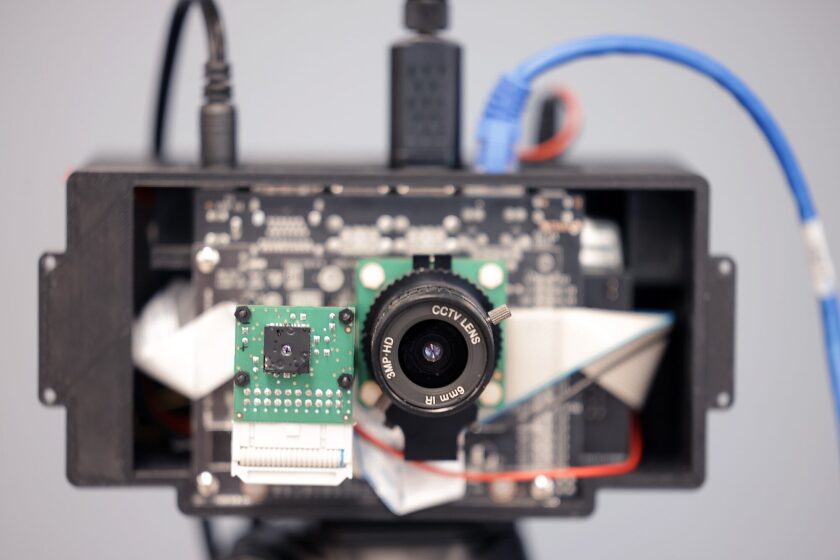Smart Camera Turns People into Stick Figures

Brenda Ahearn, Michigan Engineering
Keeping a sense of privacy in a world where cameras are ubiquitous is increasingly challenging. Surveillance isn’t limited to public spaces anymore—it extends into our homes through devices like baby monitors, webcams, and even inconspicuous cameras in autonomous appliances like vacuum cleaners. As technology watches us more closely, our privacy diminishes.
Everything’s fine until your Roomba catches you in a private moment, and those images mysteriously end up on Facebook.
A Camera Technology That Anonymizes Individuals as Stick Figures Before Data Transmission
Engineers at the University of Michigan (U-M) have devised a method to preserve privacy while maintaining security and functionality across a variety of smart devices designed to enhance daily life. Their innovation, known as PrivacyLens, involves a new camera technology capable of anonymizing individuals by transforming them into stick figures before any data transmission occurs.
PrivacyLens combines a conventional video camera with a heat-sensing camera to detect a person based on their body temperature.
Onboard electronics then remove the person from the video feed and replace them with a moving stick figure that mirrors their real-time movements. All processing happens within the camera itself, ensuring that no identifiable images are sent to the cloud.

Brenda Ahearn, Michigan Engineering
PrivacyLens Technology by University of Michigan Ensures Privacy for Chronic Health Monitoring and Exercise Tracking
In addition to preventing potentially embarrassing privacy breaches, the technology developed by the University of Michigan team could enable individuals with chronic conditions to utilize smart devices for health monitoring or exercise routines without concerns.
“Cameras offer valuable information for monitoring health,” explained Yasha Iravantchi, a doctoral student in computer science and engineering at U-M.
“They could track exercise routines and daily activities, or alert caregivers when an elderly person falls. However, this raises ethical concerns for individuals who could benefit from such technology. Without privacy safeguards, they face a dilemma of sacrificing privacy for effective chronic care. This device could provide us with essential medical data while safeguarding patient privacy.”

Brenda Ahearn, Michigan Engineering
Customizable Privacy Feature in PrivacyLens Allows Users to Adjust Anonymity Based on Home Location Preferences
The researchers have integrated a customizable privacy feature into the device, allowing users to adjust the degree of anonymity. This feature addresses findings from a survey indicating that the desired level of anonymity could vary depending on specific locations within the home.
“Our survey indicated that individuals might prefer to blur only their faces in the kitchen, while in other areas of the house, they might prefer their entire body to be obscured,” explained Alanson Sample, associate professor of computer science and engineering at U-M and lead author of the study detailing the device. “We aim to empower individuals with control over their private information and its accessibility.”
Beyond enhancing privacy within household devices, the researchers believe their technology could be beneficial in public settings where identifying individuals is unnecessary, yet understanding their activities and locations remains significant—whether for cameras on autonomous vehicles or companies gathering outdoor data.
Sample has submitted a provisional patent for PrivacyLens with plans for commercialization, while Iravantchi will present the device at the Privacy Enhancing Technologies Symposium in Bristol, U.K., this week.
Read the original article on: New Atlas
Read more: Cutting-edge Astronomy Camera Set to Unveil Cosmic Secrets










